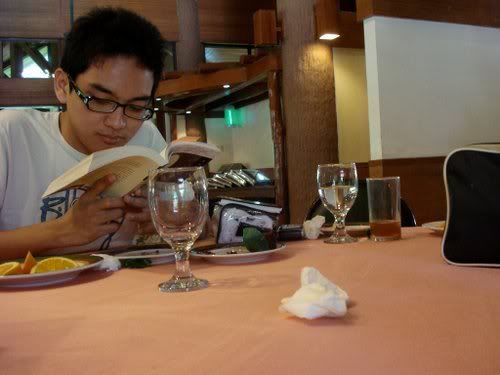 now i love jun'ichirō tanizaki. reading the key turns one into a crazy person, or a kid, or a retard, one who doubts everything yet believes everything that is written in the alternating diaries/"confessions" of a seemingly ordinary couple. if everything is real then the opposite of real is real too. husband lusts after his wife, ikuko, who he says is reticent and modest but is actually sexually insatiable. wife tells lies in her diary entries and makes husband jealous, the husband meanwhile knows of the plot, gets jealous a little. they read each other's entries and pretend they don't, or haven't; they have incredible sex, they're not teens anymore.
now i love jun'ichirō tanizaki. reading the key turns one into a crazy person, or a kid, or a retard, one who doubts everything yet believes everything that is written in the alternating diaries/"confessions" of a seemingly ordinary couple. if everything is real then the opposite of real is real too. husband lusts after his wife, ikuko, who he says is reticent and modest but is actually sexually insatiable. wife tells lies in her diary entries and makes husband jealous, the husband meanwhile knows of the plot, gets jealous a little. they read each other's entries and pretend they don't, or haven't; they have incredible sex, they're not teens anymore.the translated tanizaki is written in short, uncomplicated sentences. yet if some essence of the original work is retained, we see an irrationality in love and passion, or just sex, that ruins people and also makes them whole. husband and ikuko compete. they both win and they're both destroyed. oxymoron/paradox. one cannot be better than the works one reads, so that's my summary. give me more tanizakis.